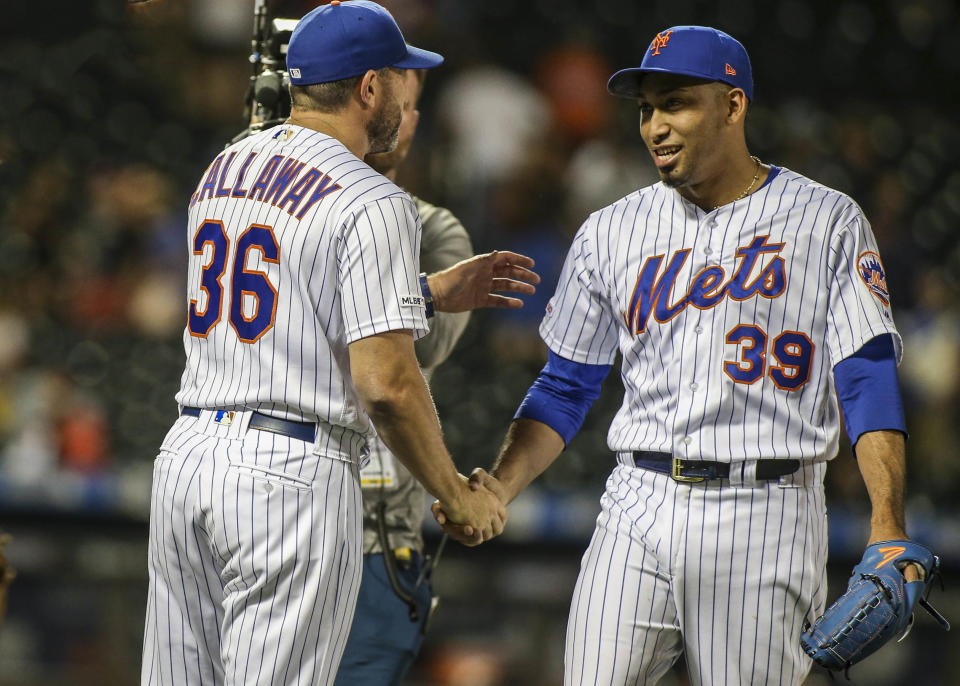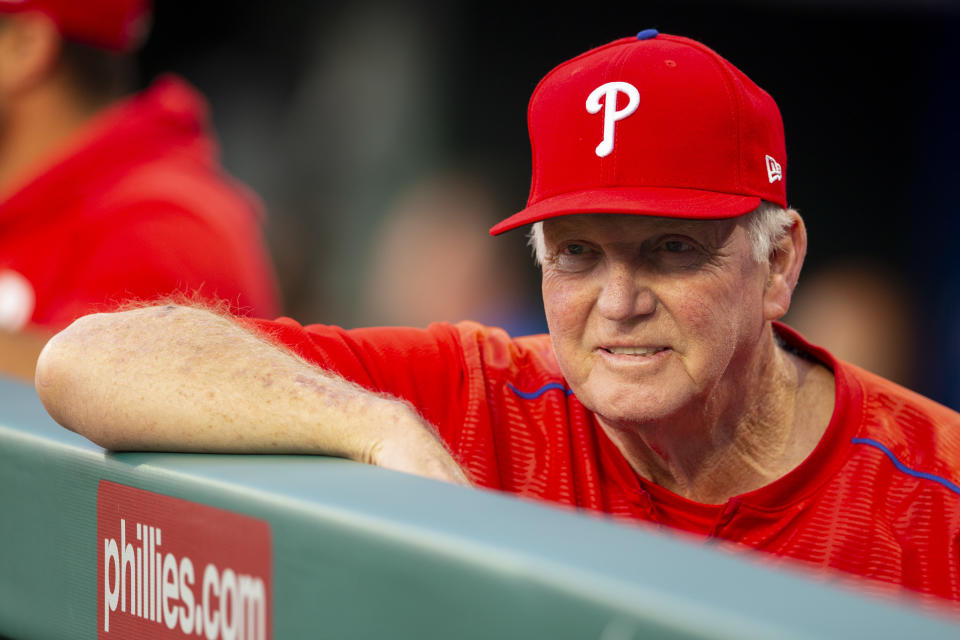The Pen: Good teams missing the playoffs is a feature, not a bug, of the baseball season
Somewhere around the middle of my first baseball season as a national reporter, which is this baseball season, I interviewed Mariano Rivera. I don’t remember much of what I came prepared to talk about (although I could remind myself right here), but I remember that as part of the idle chit-chat I asked him if time passes faster or slower in retirement than it had during his career. So much slower, he told me. The seasons had flown by.
It’s the central tension of covering the sport, I suppose, that a baseball season is a long monotonous grind that seems to fly by.
There’s time for everything to happen: for bad teams to look unbeatable, for everyone to notice the ball is different and later get bored of talking about it, for all-consuming dramas to fall by the wayside. And yet, before you can even get your bearings, the season’s halfway over. Blink again and it’s almost October. I don’t think this is so much a riddle as a byproduct of the sport’s defining omnipresence.

Or at least it’s an honest, if not exculpatory, excuse for launching a baseball column on Sept. 27.
The timing of this means that I am going to spend a lot of words very soon on all the teams that were good enough, which is why I want to take this first column as an opportunity to write about the teams that were almost, but not quite, good enough.
I think there’s a very strong argument to be made that the health of a sports league is reflected in how many fanbases are heartbroken on the first day of the playoffs.
The same number of teams miss the postseason whether or not there’s believable parity and nationwide interest, and thus how many of those teams’ hometowns thought they had enough of a chance to be disappointed at the end of six months is the only measure of whether the season “mattered.” (Insofar as it determined the playoff field, which is not intended to be a comment on whether “meaningless” baseball games have inherent value in other ways.)
And for this reason, I would like to commend the recently eliminated Mets and Phillies (and Cubs, who came close, albeit it without the high stakes of flashy moves) for doing their part. Even Mickey Callaway.
There are all sorts of things to quibble with in the Mets’ and Phillies’ seasons, and retroactive armchair GMs and managers are correct to think that if they could redo one contract or one bullpen move the whole thing might have been different. But that’s because the butterfly effect is real and hindsight is even clearer with quantitative analysis. It is a tautology to claim that disappointments of today are the result of decisions made yesterday. Of course they are; that’s just the passage of time.

Which is not to say that, internally, there won’t or shouldn’t be reckonings. Of course Something Went Wrong if they spent all the money and made the big trades and don’t get to play in October. I’m just not sure that what went wrong was spending all that money or making those trades. I think probably what went wrong is that some people didn’t perform as well as they could have or should have or were expected to — and that enough other teams were also trying to win.
I mean this as a reminder to those who (understandably) rail against tanking that if fewer teams tanked, more teams would be left disappointed — and that this would be a good thing. Even more stridently, I mean this as a condemnation of chastising a team for not having sufficiently committed to a rebuild in the face of a barely missed postseason berth. The failure of the 2019 Mets or Phillies isn’t that they refused to throw in the towel in July, and saying so is a disservice to fans.
Baseball is a zero-sum game — a fact that has beget the modern tendency of teams to opt out of the arms race to be better for the sake of being worse, on and with purpose. Doing so makes a certain amount of sense from the vantage of a risk-averse front office. But you don’t have to feed into the narrative that October-or-don’t-bother-trying is the kind of baseball to which teams should aspire.
At different points in the year, the Mets and Phillies each thought, to different degrees, that they were going to be good enough to compete in the postseason. Turns out, despite how predictable and projectable baseball has become, we still haven’t figured out a way to make playing the actual games moot. Thank goodness.
The appeal of sports is that they seem entirely knowable — study enough stats, read enough analysis, and you might get the bragging rights of correctly calling which teams are going to contend all the way back in April — but the joy of following them comes from the fact that, ultimately, they are not. This means some fans riding the wave and biting their nails all summer are rewarded with the joy of more, bigger games. And it means devastating disappointment when instead those seasons end in September. That’s how it’s supposed to work.
Notes from the clubhouse
A few weeks ago — when the Phillies played the Mets, which gives this first iteration a continuity I’m not sure I’ll be able to repeat — I talked to beloved-former-manager-turned-septuagenarian-hitting-coach (and my new favorite Twitter sensation) Charlie Manuel. I thought the Phillies might just pull it off, or at least I was biased enough to hope they did, and wanted to bank some quotes on how he’d helped to turn things around.

Except he didn’t and they didn’t, so I trashed those. Instead, here are some non-forward-looking excerpts from that conversation. These quotes have been edited as lightly as possible to retain Charlie’s characteristic flair.
On getting the offer and taking the job:
I just got home from a road trip to the minor leagues. [Phillies GM Matt] Klentak called me early one morning about 9:00 or 8:30 or something and asked me if I would take this job till the end of the season. And I told him I had to think about it. And I went out and did something and came back, and actually I was watching the game on television and fell asleep and I woke up, about a quarter till 9 and I picked up the phone and called him back. The way he kind of made it sound like he thought I could help them and things like that and I thought, well, I work for the Phillies, why would I tell them no? They’ve been good to me and I felt like, if they wanted me, I wanted to do this for them.
On the information-age of baseball analytics and being a 75-year-old in a young man’s game:
I keep up with it. The analytics people they inform me every day, who’s pitching, all that. They give me all the information they have. And the information I get is fine. But at the same time, too, we still gotta go out and do it on the field. Every day is different.
I think they look at me as an old baseball guy and that would be true. But at the same time, too, I want to know splits and what guys hit off breaking balls, what he hits off changeups, what he hits off fastballs. All the information about what the guy throws and when and how and counts. I keep up with that, I always have.
On being the biggest storyteller ever:
I’m the biggest storyteller ever. If you go ask ‘em. They look at men like my age, and everything, I tell all these stories and I’ve got a story for everything, I’m sure that they’ve heard all the stories.
On whether he’s ever tempted to step into his old role and make managerial decisions:
My job basically is to work with the hitters. I guess bring some, whatever you call it, life energy, whatever to our team. And I definitely try to stay out of our manager’s way as far as making decisions, that’s not my job.
But when you go home are you still thinking about how you would have done it?
I think everybody does that but at the same time, too, I just don’t have to say anything about it.
Notes from the stands
In case it wasn’t already abundantly clear from everything else I do here and beyond, I find fandom fascinating. But as interesting as it is as an intellectual exercise and a series of generalized hypotheticals, the actual experts on my chosen field of study are people who read baseball columns.
And so I’m hoping you’ll help me out for this last section each week by responding to a question in the comments, in my inbox at hannah.keyser@yahoosports.com or on Twitter. You tell me what you think, and it’ll be my job to make some sense of the replies.
For next week — before we get to playoff results, which have a tendency to supersede in our memories the months that came before — tell me: Do you think 2019 was a good baseball regular season?
More from Yahoo Sports:

 generic
generic 
